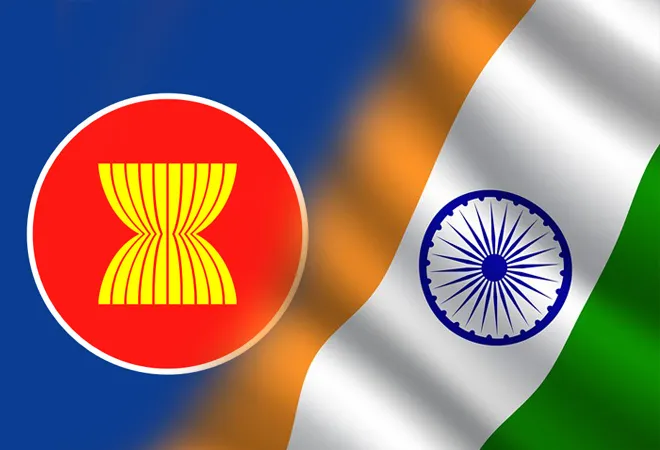As negotiations on the review of the Asean-India Trade in Goods Agreement (AITIGA) intensify, India is exploring interim measures to shield domestic industries from surging imports from the 10-nation bloc. A senior official revealed that India may seek flexibility in tariff concessions and a mechanism to provide protection to sectors most affected by increased imports post-FTA.
The next round of negotiations is scheduled for November 19-22 in New Delhi, with both sides aiming to conclude the review process by 2025. India is optimistic about substantial progress during these talks.
Key Issues on the Table
The review of AITIGA, initiated in 2019, aims to address India’s concerns regarding the widening trade deficit with ASEAN. Key areas under scrutiny include:
- Market Access and Rules of Origin: India is particularly concerned about the deep integration of Asean supply chains with China, which could potentially lead to circumvention of tariffs and increased imports from China disguised as Asean origin goods.
- Standards, Technical Regulations, and Conformity Assessment Procedures: Aligning standards and regulations to facilitate smoother trade flows and reduce non-tariff barriers.
- Sanitary and Phytosanitary Measures: Harmonising food safety and plant health standards to ensure safe and quality products.
- Legal and Institutional Issues: Addressing legal frameworks and institutional mechanisms to support the implementation of the agreement.
- Customs Procedures and Trade Facilitation: Streamlining customs procedures and enhancing trade facilitation measures to reduce trade costs.
- Trade Remedies and Technical Cooperation: Exploring mechanisms to address unfair trade practices and enhancing technical cooperation to build capacity.
Impact of AITIGA on India’s Trade Balance
India’s trade deficit with ASEAN has significantly widened since the implementation of AITIGA, rising from $4.98 billion in 2010-11 to $38.4 billion in 2023-24. While the deficit has decreased slightly in recent years, it remains a significant concern for India.
As both sides work towards a balanced and mutually beneficial outcome, the upcoming negotiations will be crucial in shaping the future of India-Asean trade relations.

